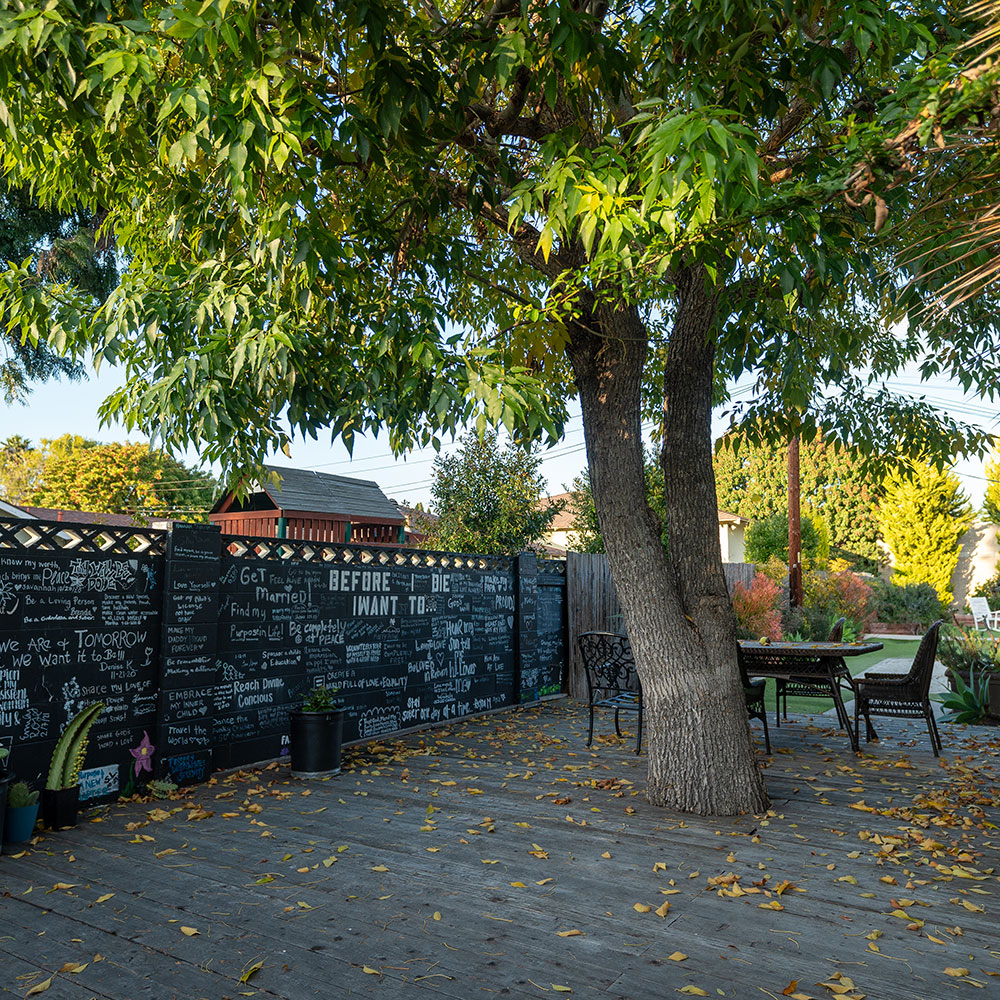
Depression affects your state of mind and your ability to perform everyday functions such as eating, sleeping, and working. The biological makeup of a woman makes her twice as likely to be diagnosed with depression as a man. Depression can lead to substance abuse which is used as a coping mechanism. Mental disorders like depression can cause several problems for a woman and her livelihood.
Often, when a person is struggling with addiction and co-occurring depression, they may turn to drug abuse to cope. When this happens, a person can fall victim to co-occurring disorders, which occur when a person is dealing with bout addiction and a mental disorder. This is where addiction treatment comes into play.
New Directions for Women is a facility that focuses on supporting you as you work to overcome challenges with addiction and depression. We provide a single-sex environment that encourages many forms of shared support. Our environment is one that promotes healing with many treatment options that lead to a healthier lifestyle.
Defining and Understanding Depression
Depression is defined as a state of low mood and aversion to activity. Depression affects millions of people in various ways. Many people feel that depression is nothing more than a temporary “low” or mood that can be controlled. In fact, it’s a mental illness that researchers feel is prompted by a person’s overall biological, genetic, environmental, and psychological composition.
Depression is a disorder that is treatable with medication and therapy. Antidepressant medications take time to adjust before making a noticeable difference in a person’s mood and appearance. Patience and time are important tools to keep in mind. Therapy options for those diagnosed with clinical depression are:
- Cognitive Behavioral Therapy
- Interpersonal Therapy
- Psychodynamic Therapy
What Are Signs of Depression?
Typically viewed as an emotional illness, depression can also affect you in physical ways. Headaches, stomach pains, or digestive issues are a few examples. Dealing with these physical ailments over long periods of time can prompt a feeling of helplessness and frustration. A vicious circle of physical and mental battles is the result.
Major depression can be extremely problematic for people struggling with substance abuse disorders. Not only does it cause emotional pain but depression can also exasperate substance use disorders among those who are vulnerable. Depression can impact women of all ages, from middle-aged adults and beyond. This is why depression treatment is important for a person’s mental health and wellbeing.
Outward depression symptoms can include:

- Thoughts of suicide or death
- Feeling unworthy
- Feelings of guilt
- Problems concentrating
- General irritability
- Weight gain or weight loss
- Lack of sleep or sleeping too much
- Lack of participation in everyday life events
- A decrease in energy
Depression can be linked to many other health issues in women. Diseases include obesity, heart disease, and cancer. Studies show that obese women are more likely to become depressed than men. Women who are diagnosed with heart disease are twice as likely to be diagnosed with depression. And one in four people battling cancer becomes depressed.
What Are the Types of Depressive Disorders?
A person experiencing depression feels an overwhelming lack of self-worth. This is a much different emotional state from someone who is sad due to a life event such as a death or a broken relationship. If feelings of no to low self-worth last for more than two weeks, it’s time to get medical advice.
Depression is also known as a major depressive disorder. Types of depressive disorders and their common symptoms include:
- Persistent Depressive Disorder: A diagnosis of persistent depressive disorder occurs when a person has symptoms of depression for over two years.
- Bipolar Disorder: This is also known as manic depression. Symptoms include extreme mood swings and risky behavior.
- Psychotic Depression: People with psychosis experience extreme delusions, hallucinations, and a break with reality. They also may hear voices.
- Seasonal Affective Disorder (SAD): Someone suffering from seasonal affective disorder has symptoms of depression during the fall and winter months. Symptoms of psychotic depression include hallucinations, delusions, and paranoia.
- Postpartum Depression: Postpartum depression occurs in some women after they give birth. Their emotions cause them to neglect their children and inadequately care for them.
Treatment for Depression
The main types of treatment for major depression and depressive disorders include:
- Medication
- Psychotherapy
- Lifestyle changes
- Electroconvulsive therapy (ECT)
- Repetitive Transcranial Magnetic Stimulation (RTMS)
Why Makes Women Susceptible to Depression?
 Depression is more common among women than men. This may be caused by a combination of genetic, biological, environmental, and psychological ingredients.
Depression is more common among women than men. This may be caused by a combination of genetic, biological, environmental, and psychological ingredients.
Depression in women is not caused by a single event or reason. There are many factors that can play into it. Factors such as:
- The chemical makeup of the brain. The part of the brain that controls moods, thoughts, and sleep may not be balanced.
- Stress over life events such as death, unhealthy relationships, financial strain
- Hormone levels in some women that are unbalanced or changing
- Pain from health issues that linger over long periods of time
- Family history
Some hormonal contributors may include:
- Puberty can create internal and external conflicts. Hormone levels are fluctuating during this time of a young woman’s life.
- Premenstrual syndrome (PMS) causes headaches, bloating, headaches, anxiety, joint pain, and muscle pain.
- Pregnancy creates huge hormonal changes that affect moods.
- Postpartum depression is also known as the “baby blues.” This is a serious hormonal imbalance that can lead to depression.
- Perimenopause and menopause are other times in a woman’s life when hormone levels are unsteady.
Depression Specific to Women
Depression in women is not age-specific; however, the types of depression that are particular to women can be related to hormonal changes. These changes have common denominators that create mood swings and feelings of irritability. There is a reason for concern when the symptoms do not decrease over a short period of time.
Some types of depression that are specific to women are:
- Premenstrual Dysphoric Depression (PMDD) is a more severe form of premenstrual syndrome (PMS).
- Perinatal Depression includes depression that begins before the birth of a child (prenatal depression) and continues after the child is born (postpartum depression).
- Perimenopausal Depression occurs when menopause begins.
All these types of depression have symptoms of extreme mood swings, abnormal anxiety levels, and a complete disconnect from the world. It’s important to seek treatment. New Directions for Women can provide you with the care that you and your family are seeking. Our treatment programs focus on an approach to healing that lasts for the long term.
Can Depression Lead to Addiction?
For a woman who is battling a combination of depression and substance abuse, it’s hard to determine which disorder came first in many situations. The term for this is called “co-occurring disorders” or “dual diagnosis“. Co-occurring disorders that include a form of clinical depression are common.
People who suffer from depression sometimes self-medicate by using drugs or alcohol. Alcohol is also a depressant which makes the depressive disorder symptoms escalate. It’s as though you’re fighting fire with fire.
Studies show that 1 in 3 adults who suffer from alcohol or substance abuse also suffer from depression. In cases where women suffer from alcohol abuse, it’s hard to diagnose whether it is alcoholism or an actual depressive disorder causing their depression.
If opioids are the drug of choice, they can cause a higher risk of the user becoming more susceptible to a depressive disorder. This is why dual diagnosis treatment is necessary, for both substance abuse and mental illness.
Depression: What Is It?
Depression is a group of conditions associated with the elevation or drop of a person’s mood, such as depression or bipolar disorder.
American adults suffer from depression.
Signs of Depression
Suicidal Thoughts
Irritability
Sleeping Issues
Lack of Energy
Guilt
Weight Gain/Loss
Treatment for Substance Abuse and Depression
 Depression is a disease that requires treatment so that symptoms can lessen or disappear. They will not go away on their own. Substance abuse is a disease that also requires specific treatment specific to the type of substance. If you are suffering from both depression and substance abuse it is important to receive treatment for both at the same time. The chance of a successful, effective treatment increases when a dual diagnosis is determined.
Depression is a disease that requires treatment so that symptoms can lessen or disappear. They will not go away on their own. Substance abuse is a disease that also requires specific treatment specific to the type of substance. If you are suffering from both depression and substance abuse it is important to receive treatment for both at the same time. The chance of a successful, effective treatment increases when a dual diagnosis is determined.
If you do not receive clinical depression treatment — and it’s what is prompting your substance abuse or alcohol — then there’s no hope of the symptoms lessening or disappearing. The same is true if you have an addiction to drugs or alcohol and it is the trigger for your depression or other mental illness. Treatment is key to having a productive and happy future. Receiving rehab for substance abuse and depression will be helpful in promoting
Rehab Programs Available for Addiction and Depression Treatment
There are many different options available at treatment centers like NDFW. While there is no one-size-fits-all treatment program for recovery, we offer a variety of choices. Typically, drug addiction and dual diagnosis treatment include:
- Inpatient treatment or residential treatment program
- Outpatient treatment (Partial hospitalization program, IOP, etc.)
- Therapy (group therapy sessions, dialectical behavior therapy, cognitive-behavioral therapy, art therapy, holistic treatment, etc.)
- Aftercare programs
Treatment for a dual diagnosis needs to cover the psychiatric issues as well as alcohol or substance abuse. Addiction and depression treatment should include:
- Counseling
- Peer support
- Education
- Relapse prevention
Medication therapy is necessary and aids in the treatment of the symptoms of depressive disorder. Other support from peer group therapy and family therapy as well as individual therapy sessions are also important. Women who are battling dual diagnoses respond better to gender-specific treatment.
The Goals of Dual Diagnosis Treatment
According to the Substance Abuse and Mental Health Administration, the goals of treatment for dual diagnosis treatment include:
- Helping you understand the cause of your depression or mental illness
- Teaching you that recovery from depression and drug or alcohol addiction is possible
- Motivating you to make changes to improve your life
- Supplying you with the skills to handle negative thoughts
- Assisting you in identifying and changing your patterns of addictive behavior
At New Directions for Women, we seek to provide a quality treatment program that matches all your needs. With family therapy sessions, individualized therapy, support groups, and a safe environment, our co-occurring disorder treatment program is built with you and your family in mind. While dual diagnosis cases can be complex, we urge that you act sooner rather than later.
If you are suffering from depressive symptoms in addition to substance abuse issues, we are here to help you. You don’t have to fight substance use disorder and depression alone. Allow New Directions for Women to support you.
Where to Turn for Help for Treatment of Addiction and Depression

Our rehab for depression and addiction can provide the stepping stones to our treatment program. We are committed to helping you and your family through the stages of diagnosis, treatment, and rehabilitation. Our campus is built around a belief that family comes first and we provide a gender-specific, stress-free environment that promotes these beliefs. Substance abuse treatment can cover both mental health problems and addiction treatment.
Addiction and depression treatment involves several treatment options, each with you in mind. Our goal is to help women overcome addiction and mental health issues with case and expertise. Our depression treatment program is catered to make women feel safe while getting help for both their addiction and depression.
We have dedicated mental health professionals on our team. Our staff at New Directions for Women are ready to talk to you or your loved one about the details of our treatment programs. Contact us today for information about how to begin a new life in which you can look forward to a bright, happy future full of promise. We look forward to helping you start on this new path where addiction and depression are no longer part of your life!
References:
https://www.nimh.nih.gov/health/publications/depression-in-women/index.shtml
https://www.womenshealth.gov/mental-health/mental-health-conditions/depression










